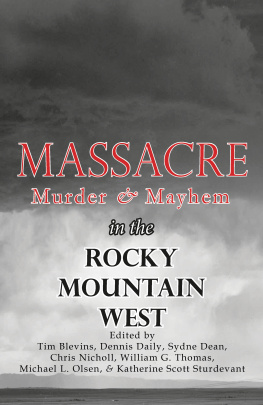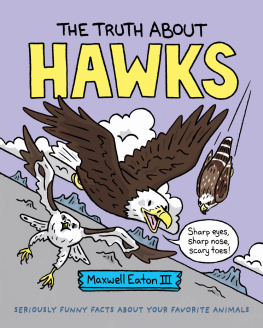Win Blevins - Give Your Heart to the Hawks: A Tribute to the Mountain Men
Here you can read online Win Blevins - Give Your Heart to the Hawks: A Tribute to the Mountain Men full text of the book (entire story) in english for free. Download pdf and epub, get meaning, cover and reviews about this ebook. year: 2005, publisher: Forge Books, genre: Detective and thriller. Description of the work, (preface) as well as reviews are available. Best literature library LitArk.com created for fans of good reading and offers a wide selection of genres:
Romance novel
Science fiction
Adventure
Detective
Science
History
Home and family
Prose
Art
Politics
Computer
Non-fiction
Religion
Business
Children
Humor
Choose a favorite category and find really read worthwhile books. Enjoy immersion in the world of imagination, feel the emotions of the characters or learn something new for yourself, make an fascinating discovery.

- Book:Give Your Heart to the Hawks: A Tribute to the Mountain Men
- Author:
- Publisher:Forge Books
- Genre:
- Year:2005
- Rating:4 / 5
- Favourites:Add to favourites
- Your mark:
- 80
- 1
- 2
- 3
- 4
- 5
Give Your Heart to the Hawks: A Tribute to the Mountain Men: summary, description and annotation
We offer to read an annotation, description, summary or preface (depends on what the author of the book "Give Your Heart to the Hawks: A Tribute to the Mountain Men" wrote himself). If you haven't found the necessary information about the book — write in the comments, we will try to find it.
Win Blevins: author's other books
Who wrote Give Your Heart to the Hawks: A Tribute to the Mountain Men? Find out the surname, the name of the author of the book and a list of all author's works by series.
Give Your Heart to the Hawks: A Tribute to the Mountain Men — read online for free the complete book (whole text) full work
Below is the text of the book, divided by pages. System saving the place of the last page read, allows you to conveniently read the book "Give Your Heart to the Hawks: A Tribute to the Mountain Men" online for free, without having to search again every time where you left off. Put a bookmark, and you can go to the page where you finished reading at any time.
Font size:
Interval:
Bookmark:
GIVE
YOUR HEART
TO THE HAWKS
Winfred Blevins
1975
A Tribute to the Mountain Men
for Thomas Blevins
I write as though Iwere speaking directly to an ideal reader with whom I share basicvalues. Because we worked out those values together, because we arefriends more than brothers, and because, in the day-by-day writingthese words were spoken to your ears, this book is dedicated to you.
Acknowledgments
I am indebted first to Thomas Blevins, who listenedpatiently to the thinking through of this book and who read themanuscript and made useful suggestions. Then to Craig Stinson forreading the manuscript perceptively. And to theHenry E. Huntington Library for making its excellent resourcesavailable to me.
Highly personal thanks must go to Vonnie Brenno, whosustained me through the difficult times of writing; to Dr. JoanneTrautmann, who has been my companion for years in an intimatespiritual dialogue; to my uncle James Crawford, who taught me withoutwords to love the wilderness; and to Dr. John G. Neihardt, author ofCycle of the West, who fanned my interest in the West and in writingwhen I studied with him fourteen years ago.
Contents
Preface
I have not attempted here to write a history of theera of the mountain men. A history would have to be much morecomprehensive than this book is; it would have to treat itscharacters with something like their importance in the perspective oftime; it would have to analyze causes and consequences; it would beobliged to put the mountain men into a larger view of Americanhistory.
Instead, I have selected men and events that seem tome suggestive of the whole. For instance, I have dealt with ledSmith, Jim Bridger, Tom Fitzpatrick, and Bill Williams in somedetail, but have almost excluded figures of perhaps equalimportancelike Kit Carson, Joe Walker, Manuel Lisa, and JosiahGregg This book does proceed chronologically from the beginning ofthe period of the mountain men to roughly its end; but I do not wantto delude the reader that all of its major action is included. I onlyhope that the flavor of the men and their time is evoked fully enoughthat readers can grasp the large picture without some of itsspecifics.
History as a record of large movements, the workingout of abstractions like mercantilism, imperialism, or ManifestDestiny, does not interest me much. What does interest mefascinatesmeis history as a rendering of felt experience. When I read, Iwant to know what it felt like to be the first European to see theNew World, or what it felt like to be a tinker in London during theAge of Enlightenment. History does not exist as an abstraction; itexists, and existed, only in personal perspective, as actual peoplelived and experienced it.
This book deals with actual people and actual doings.Every substantial event in it is verified by newspapers, journals,documents, or books that recorded actual statements of trappers. Noneof that is invented. But I have gone beyond the objective events intothe subjective sphere: I have tried to tell not only what they did,but how they felt about what they did, what their lives were like ona day-to-day, experiential basis. That is the other half of anyreality.
Naturally, that kind of recreating involves a certainamount of creating. We may not know whether a man experienced fear interms of violent nausea or of a sharp constriction of the throat; wemay not know what the expression on his face was when he heardthieves among his horses. In defense of that kind of dramaticrecreation, I can only plead a long and intimate acquaintance withmountains, immersion in the material, strong identification with thecharacters, and a common humanity that permits us to feel withanother man in situations he faced. Many of the details I haveinvented may be inaccurate; I am confident that the moods andfeelings they suggest are right.
I have tried to take the trappers' perspective ontheir lives: their knowledge and ignorance of the West they lived in,their attitudes toward Indians and greenhorns, their convictionsabout their lifestyles. And I ask the reader to enter into theirpoint of view. One procedure will help here: The mountain men thoughtof the West topographically, not in terms of political boundaries orman-made landmarks which did not exist. So I have used their namesfor the places of the West. The maps will help the reader who thinksof the West in terms of its modern states; occasionally, whencomplete disorientation seemed to threaten, I have helped out with amodern geographical reference. But the reader will see the West morenearly as the mountain men did if his conceptions are topographic andnot political. He will also do well to remember that while we mightthink of the trappers as agents of Manifest Destiny in a westwardingnation, they certainly did not.
In form, this book is a succession of stories,roughly chronological, about the doings of mountain men. Smallessays, called interludes, are interspersed between the stories toprovide background that seemed critical to understanding. The storiesstand independent of the interludes, but not of each other.
Theeagles and little falcons and all the bright cold hawks
... are widening
Theirwings to wash them in the cool clearness, and over
the precipices launching their bodies likeships
On the high waves of dawn....
...We're going until theworld changes, you and I, like
theyoung hawks .
Going hunting;we'll take the world by the throat and
makehim give us
What we desire. ROBINSON JEFFERS
"Give Your Heart to the Hawks"
Introduction
This book is a personal tribute to the firstWesternersthe men who moved ahead of the American frontier in thefirst half of the nineteenth century, who trapped and hunted andsimply lived in the Rocky Mountains before anyone else thought ofgoing into the Westthe mountain men.
They were the progenitors of what has become the mythof the West. If the Western character was individualistic andself-reliant, the mountain men far outdistanced the cowboy, thelawman, and the badman at both. Hundreds of miles from laws,institutions, general stores, and helping hands, they had no choicebut complete self-reliance. Cut loose from the influence of societyand convention, they were radical, idiosyncratic individualists. Ifthe West represented the ultimate opportunity for personal freedom,they grabbed that opportunity first and most fully.
They explored the entire West. By the time the UnitedStates sent Colonel John Charles Frmont on his westward expeditionsof exploration, the mountain men could and did lead him by the handto every creek, meadow, ridge, and peak of it. They developed theplains and mountain craft that the settlers, the gold miners, and thecowhands would later need. They discovered, and taught theirsuccessors in the West, what qualities of character the mountains anddeserts demanded of anyone who wanted to survive in them.
Yet they have never attracted the attention of thevast majority of Americans. To people who have repeatedly lived thevicarious adventures of Wyatt Earp and Billy the Kid, the names ofthe foremost mountain menJedediah Smith, Jim Bridger, TomFitzpatrickmight be taken from a current telephone directory.Although such distinguished writers as the poet John G. Neihardt,historian Bernard DeVoto, and novelist A. B. Guthrie, Ir., haverecreated the mountain men and their time vividly for modem readers,the Rocky Mountain fur trappers have gained no hold on the popularimagination.
We may, on the whole, be a little afraid of them. Weare afraid of their country: We drive to the ends of blacktoppedroads, peer at the mountains from behind our insulated windshields,murmur about how beautiful they are, and hurry back to the safety ofour motels; or we copy them onto canvases, prettifying them andfeminizing them in the process. Perhaps, as we draw back from thegrandeur and the terror of the mountains, we draw back from theuncompromising wildness of the mountain man.
Next pageFont size:
Interval:
Bookmark:
Similar books «Give Your Heart to the Hawks: A Tribute to the Mountain Men»
Look at similar books to Give Your Heart to the Hawks: A Tribute to the Mountain Men. We have selected literature similar in name and meaning in the hope of providing readers with more options to find new, interesting, not yet read works.
Discussion, reviews of the book Give Your Heart to the Hawks: A Tribute to the Mountain Men and just readers' own opinions. Leave your comments, write what you think about the work, its meaning or the main characters. Specify what exactly you liked and what you didn't like, and why you think so.












